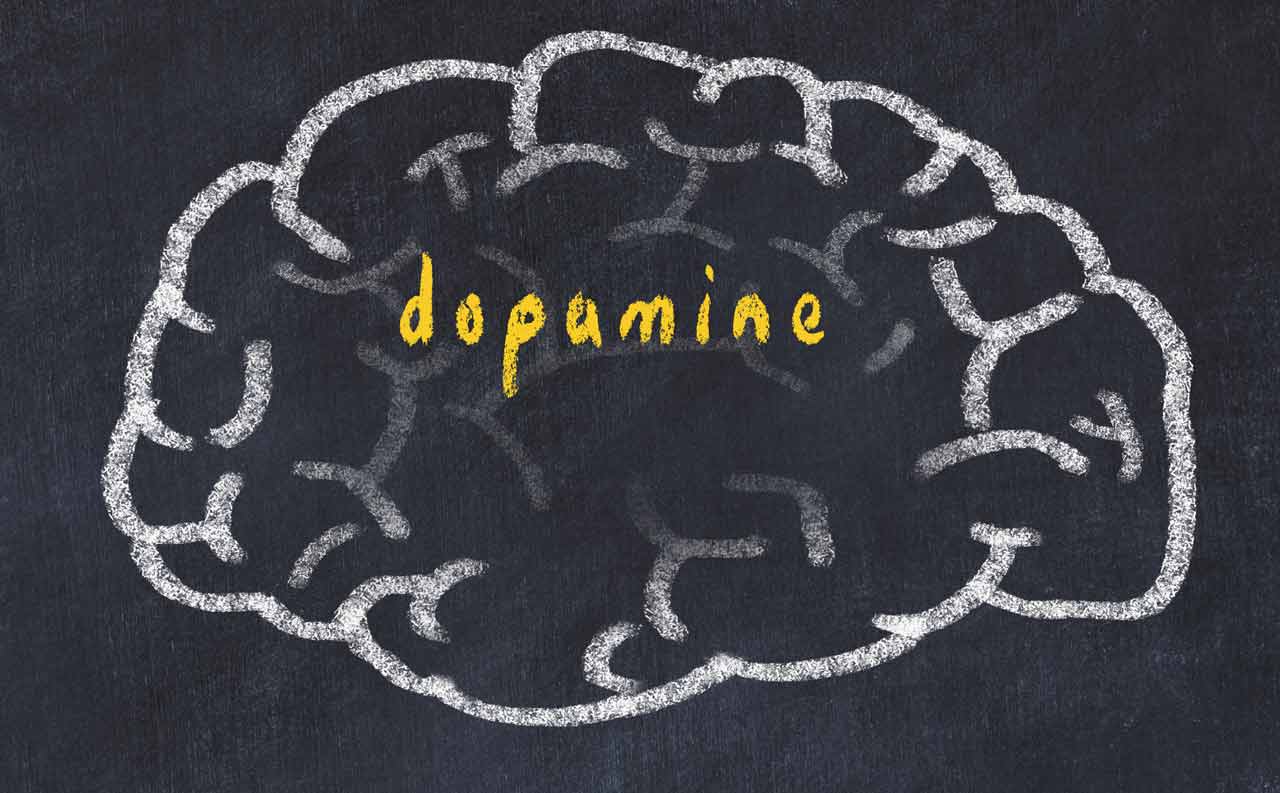Dopamine, the Feel Good Hormone.
Activities like eating certain foods and having sex increase the dopamine activity in our brains.
What is Dopamine and what does it do for our bodies?
Dopamine is a neurotransmitter and a hormone that plays an important role as the body’s reward center.
It affects movement, memory, motivation, focus, mood, sleep, and pleasurable reward.
More simply put, Dopamine is important to us as its role is vital to how we feel pleasure. It is the ‘feel-good’ hormone.
We are hard-wired to pursue behaviors that release dopamine.
Certain foods are so addictive because they trigger this pleasurable response. This is why sugar is so addictive.
Processed foods, especially ‘junk foods’, are designed to trigger a release of a large amount of dopamine into your brain and body.
The companies that make these foods know that if you feel good while eating their ‘junk food’ you will come back for more. You want a repeat of that exact experience over and over again.
Recreational drugs mimic the rewarding stimuli and we experience a flood of dopamine.
Certain stimulant drugs such as amphetamine and methylphenidate mimic these rewarding stimuli by overexciting our brain’s natural reward system and producing above normal amounts of dopamine.
The problem with recreational drug use, aside from the huge health risks that may accompany them, is that the more you use them, the more you need to get to achieve the same level of euphoria.
Your body adapts and desensitizes to the drug.
Caffeine is the most widely used psychoactive substance in the world.
Caffeine promotes a feeling of alertness and wakefulness by blocking adenosine receptors in the brain. It accomplishes this by binding to the receptors, and neural activity speeds up.
With the increase in neural activity, caffeine also enhances the dopamine signals in your brain.
This is why you seek out your morning cup (or pot) of coffee and then chase it at lunchtime with a diet soda and then an energy drink in the mid-afternoon.
You feel GOOD when you consume caffeine.
Did you know that caffeine doesn’t actually give you any energy?
Adenosine receptors in the brain act as the brakes for excessive dopamine stimulation.
Caffeine reverses the effects of adenosine. It takes the foot off the adenosine brake and increases your neural activity.
When the caffeine effects wear off, adenosine receptors return to normal. These receptors reduce the neural activity in the brain. This feeling is accompanied by drowsiness.
Drinking or eating caffeine also increases epinephrine and cortisol levels.
Even if you regularly consume caffeine, when you eat or drink it, it still causes SPIKES in STRESS.
What does this mean?
Your body is put into a Fight or Flight state. Remaining in high-alert makes you feel tired, sleepy.
When you consume caffeine, you are getting a false sense of being alert and motivated because your body is simultaneously wearing down from the added stress caused by the consumption of the caffeine.
Is there an alternative solution to caffeine?
Kratom, also known as mitragyna speciosa, is a cousin to the coffee family.
Coffee comes from the seed, known as the coffee bean.
Kratom, more like tea, is from the leaves harvested from the Kratom tree. They are dried and ground into a fine powder.
Kratom can be enjoyed as a hot or cold beverage, much like coffee. Visit Us to Buy Today.

